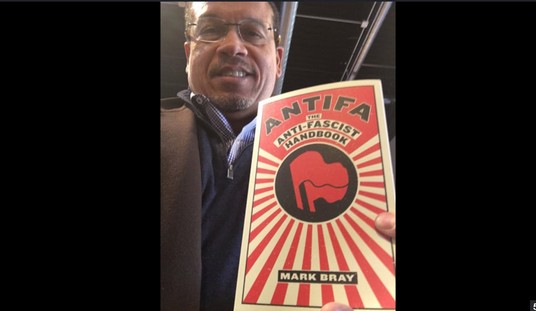It feels like the world is out of sorts Of course civilization has been here before. Some might compare it to the cultural anomie that followed the Great War. That at least could be ascribed the widespread horror of the trenches. As John Buchan observed in his novel Three Hostages, “the moral imbecile … had been more or less a sport before the War; now he was a terribly common product, and throve in batches and battalions. Cruel, humourless, hard, utterly wanting in sense of proportion, but often full of a perverted poetry and drunk with rhetoric–a hideous, untamable breed had been engendered.”
Today we live in a lesser kind of anomie, the more disturbing for the vagueness of its origins. There are no trenches we can blame this time for today’s moral imbeciles. And there is the nagging suggestion as just as there proved no way to rid the world of these “batches and battalions” of future Bolsheviks and Nazis until the even greater tragedy of World War 2 burned nihilism off the planet there might be a crisis in the 21st century too.
All the same “trust is collapsing in America,” as Uri Friedman writes in the Atlantic in 2018. “At a time of prosperity … only a third of Americans now trust their government ‘to do what is right’—a decline of 14 percentage points from last year … forty-two percent trust the media, relative to 47 percent a year ago… ‘In God We Trust,’ goes the motto of the United States. In God, and apparently little else.” And the anomie is not confined to America. The Sydney Morning Herald reported the same affliction in sunny Down Under.
After a year when voters worldwide thumbed their noses at mainstream politics and the elite, a landmark annual survey has found trust in major institutions is eroding at a rapid rate. And the effect is particularly pronounced here in Australia.
“We’re talking about a trust crisis that is causing a systemic meltdown,” says Edelman president Richard Edelman. Social researcher Hugh Mackay told Fairfax Media: “The big picture for Western societies, but especially Australia, is that respect and trust for institutions in general is in decline. That’s not a healthy attitude for any society.”
Yet the more we talk about it the less we are able rid ourselves of the depression. This malaise has made commenting on current events an exercise in frustration. The facts about almost anything are so much in dispute that writers are merely left prating over the annoyances that bedevil us all. Trending on Twitter today is the complaint about #ThingsPeopleTakeTooSeriously. We live in a state of permanent outrage.
The desire for novelty has been replaced by a deep yearning to be left alone. It is almost as if we would pay the media NOT to send us into a daily lather of anger until the subscription runs out again. But a self-imposed media silence would not answer the worrisome question raised by all mysterious historical anomies, whether like the Lost Generation of the 20s we are doomed to be cleansed by fire before emerging into trust and faith again.
We have no answer to that. Not through forecasts at least. The future is the hardest thing to predict. Saddam apparently never believed invasion would happen till it did. It’s a sobering matter of record that neither Pearl Harbor, Barbarossa, the Korean War, the collapse of the USSR, 9/11, the great financial meltdown, Brexit and Hillary’s loss were anticipated by those it most concerned.
Ironically we are unlikely to learn the answer from history eiter . Hardly a day passes without claims being put forward that everything we previously knew was a deceit. That Iraq, Brexit, Trump’s election was based upon a lie — and therefore it is not too late to undo either Brexit or restore Hillary. Our age seems fallen into a curious limbo with neither a definite history nor a foreseeable future.
Conventional wisdom seems of little help from its track record. The president of Western Union once predicted that the “telephone has too many shortcomings to be seriously considered as a means of communication.” Paul Krugman opined in 1998 that “by 2005 or so, it will become clear that the Internet’s impact on the economy has been no greater than the fax machine’s.” The savants can give us glimpses and nothing more.
Forecast error even more than fake news has an imprisoning and self-fulfilling quality. After Johnny Carson had Paul “Population Bomb” Erlich over as a guest on TV, Third world despots went on a binge of mass sterilization than snuffed out more than a 100 million potential lives.
In the 1970s and ’80s, India, led by Prime Minister Indira Gandhi and her son Sanjay, embraced policies that in many states required sterilization for men and women to obtain water, electricity, ration cards, medical care and pay raises. Teachers could expel students from school if their parents weren’t sterilized. More than eight million men and women were sterilized in 1975 alone. (“At long last,” World Bank head Robert McNamara remarked, “India is moving to effectively address its population problem.”) For its part, China adopted a “one-child” policy that led to huge numbers—possibly 100 million—of coerced abortions, often in poor conditions contributing to infection, sterility and even death. Millions of forced sterilizations occurred.
The Population Bomb’s predicted “die-off” happened partly because it was self-fulfilling. Perhaps Global Warming will be the same if the Climate Change proves to be the outcome of our attempts to “fix” things. If instead of trying to control the future or nail down history humanity could settle for being resilient; to be ready for a wide range of possible outcomes and to able to learn from its mistakes it would be in a better place.
It is unlikely to do this. The most dangerous aspect of our present malaise is the temptation to return to a remembered idyll where we were once in charge. The hardest thing to accept that nothing is given; that the way is forward; the door to the past is closed. But that would require faith that we don’t have enough of yet.
Follow Wretchard on Twitter
For a list of books most frequently purchased by readers, visit my homepage.
Support the Belmont Club by purchasing from Amazon through the links below.
Books:
The Second Machine Age: Work, Progress, and Prosperity in a Time of Brilliant Technologies, by Erik Brynjolfsson and Andrew McAfee. This book reveals the forces driving the reinvention of our lives and our economy. As the full impact of digital technologies is felt, we will realize immense bounty but also experience wrenching change. Professions of all kinds – from lawyers to truck drivers – will be forever upended. Companies will be forced to transform or die. Recent economic indicators reflect this shift: fewer people are working, and wages are falling even as productivity and profits soar. Drawing on years of research and up-to-the-minute trends, MIT’s Brynjolfsson and McAfee identify the best strategies for survival and a new path to prosperity.
Open Curtains: What if Privacy were Property not only a Right, by George Spix and Richard Fernandez. This book is a proposal for bringing privacy to the internet by assigning monetary value to data. The image of “open curtains” is meant to suggest a system that allows different degrees of privacy, controlled by the owner. The “curtains” may be open, shut, or open to various degrees depending on which piece of data is being dealt with. Ultimately, what is at stake is governance. We are en route to control of society by and for the few rather than by and for the many, because currently the handful of mega tech companies are siphoning up everyone’s data, for nothing, and selling it. Under the open curtains proposal, government would also pay for its surveillance in the form of tax rebates, providing at least some incentive for government to minimize its intrusions … (from a review by E. Greenwood).
Skin in the Game, by Nassim Nicholas Taleb. In his new work, Taleb uses the phrase “skin in the game” to introduce a complex worldview that applies to literally all aspects of our lives. “Never trust anyone who doesn’t have skin in the game. Without it, fools and crooks will profit and their mistakes will never come back to haunt them,” he says. In his inimitable style, he pulls on everything from Antaeus the Giant to Hammurabi to Donald Trump to Seneca to the ethics of disagreement to create a jaw-dropping tapestry for understanding our world in a brand new way.
For a list of books most frequently purchased by readers, visit my homepage.
Did you know that you can purchase some of these books and pamphlets by Richard Fernandez and share them with your friends? They will receive a link in their email and it will automatically give them access to a Kindle reader on their smartphone, computer or even as a web-readable document.
The War of the Words, Understanding the crisis of the early 21st century in terms of information corruption in the financial, security and political spheres
Rebranding Christianity, or why the truth shall make you free
The Three Conjectures, reflections on terrorism and the nuclear age
Storming the Castle, why government should get small
No Way In at Amazon Kindle. Fiction. A flight into peril, flashbacks to underground action.
Storm Over the South China Sea, how China is restarting history in the Pacific
Tip Jar or Subscribe or Unsubscribe to the Belmont Club










Join the conversation as a VIP Member